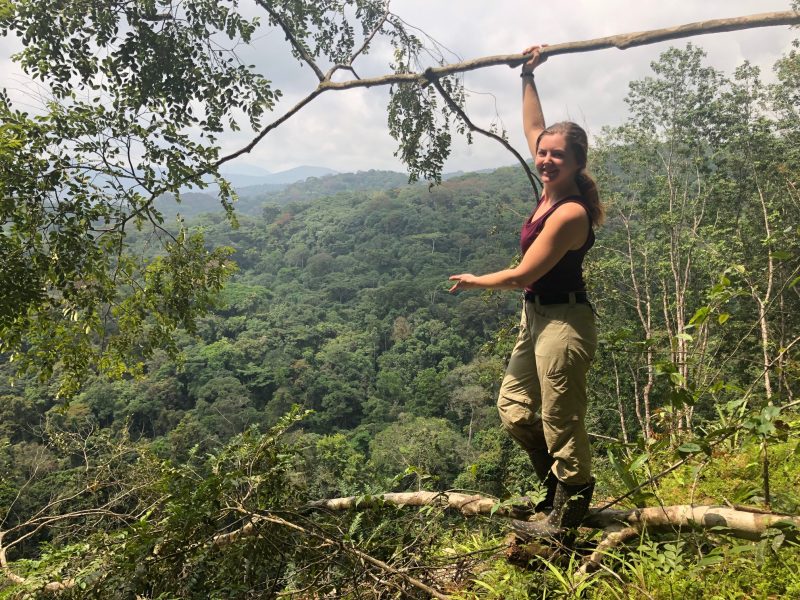My name is Tiff DeGroot, and I am a PhD Candidate in Forest Science in the College of Forest Resources and Environmental Science. I came to Michigan Tech through a winding path. In my early 20s, I waited tables and cleaned horse stalls to pay for general education courses until I could transfer into a bachelor’s program. Then I completed my BS in Biochemistry, Molecular, and Cellular Biology at the University of New Hampshire, while working nights and weekends at an indoor skydiving facility. After graduation, I saved up as much money as I could and purchased a plane ticket to South Africa to pursue my lifelong dream of studying African wildlife. I saw my first wild giraffe, tracked elephants and cheetahs, and set up camera traps to monitor leopards. When I returned to the US, I joined a global conservation non-profit, the International Fund for Animal Welfare (IFAW). My position at IFAW focused on communicating conservation efforts to a broad audience.
With a background in science and a keen interest in applied conservation, I decided to return to academia. I started by pursuing a Master’s Degree in Forest Ecology and Management at Michigan Tech. My project focused on camera trapping and noninvasive methods of mammal monitoring in Equatorial Guinea in central Africa. After one semester, I was invited to expand this project to a PhD. My project now spans multiple spatial scales, and will address mammal diversity, distribution, and communities across Equatorial Guinea. The results of this research will not only contribute to the scientific community, but will also be used to directly inform the on-the-ground management of protected areas in Equatorial Guinea.
When I am not in the lab, coding, or sorting camera trap photos, you can usually find me in my garden, training my rescue dog, or in the pottery studio.
I am incredibly grateful to the DeVlieg Foundation for allowing me the opportunity to focus on my project this summer. With an entire semester dedicated to my work, I will make good progress towards my second publication by completing a study that compares the use of camera trapping and environmentally-derived DNA (a non-invasive genetic monitoring technique) to assess mammalian diversity in Equatorial Guinea.
Michigan Tech gratefully acknowledges support from The DeVlieg Foundation for the DeVlieg Summer Research Award.
